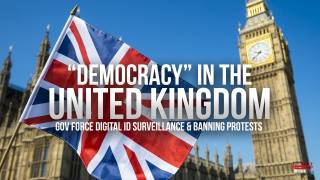European Parliament Just Voted To Ban Porn, But Refrains From Extending Scope To Internet Following Protests, And Hides Who Voted For It
Source: falkvinge.net

The European Parliament has just voted in favor of the much-discussed blanket ban on all forms of pornography. But first, it decided to strike out the much-discussed extension of “media” into the internet, effectively limiting the ban to advertising and some undefined print media. It also struck out the original criminalization of any dissent against the report and the turning of ISPs into thought police. However, Parliament’s decision to filter out its constituents’ protests on the matter and decision to hide how the representatives voted on the report is a loud and clear warning signal.
(UPDATE: It would seem that the most correct interpretation of the decision is that the parliament decided to not ban pornography, despite voting in favor of a bill that called for enforcement on exactly such a ban. These things are not always clear-cut, to say the least, even for us who work with it daily. See the followup article.)
While this is an “initiative report”, which means it is not the final vote in the legislative process, it is still part of the legislative process. Some people have used the term “non-binding” to describe the report. I would disagree that such recklessness can be excused at any point in the legislative process with the somewhat strange argument that things aren’t finalized; if this lax attitude to quality and workmanship existed elsewhere in society, our cars would be falling apart and our food would be poisonous.
The original report banned sexual text messaging between consenting adults.
The report refers to an earlier report calling for a blanket ban on pornography in advertising, which it refers to as “the media”. But this new report redefines media to include the Internet to an unclarified degree (in point 14) – which can be as broad as making it illegal to send text messages with sexual content over the Internet between married couples.
That is a clear and intolerable violation of the most basic freedoms of speech and expression.
Fortunately, the entire point 14 – which expanded “the media” onto the internet – was deleted in the vote.
The European Parliament responded by deleting the explaining language, but not the legislative effect in bill.
To accommodate the storm of protests that ensued when this was first discovered, the report was amended to remove the explanation of what it did, but not the effect. Specifically, this part was taken out:
17. Calls on the EU and its Member States to take concrete action on its resolution of 16 September 1997 on discrimination against women in advertising which called for a ban on all forms of pornography in the media and on the advertising of sex tourism
Do you see what this does? It removes the explanation, but not the referenced report, so it just hides the clarification.
The European Parliament responded by shutting off constituents’ protests.
But the next step was even worse. Some Members of European Parliament (MEPs) had complained to the Parliament’s IT staff about citizens protesting, so protests against this particular report were classified as spam. Meanwhile, hundreds of mails protesting agricultural subsidies kept coming in to the MEPs’ inboxes, so the spam filter was very specifically targeted. (Later tests confirmed that a test had been added that targeted the words “gender stereotypes”, which are in the title of the report).
When some MEPs can use Parliament’s technical infrastructure and staff to prevent the constitutents of Europe to contact their representatives — other representatives than the ones complaining, all representatives, nota bene — then the respect for democracy is on its death bed.
The original report made ISPs into thought police.
The report also called for ISPs to enforce the ban, as originally written (but this point was defeated on the floor). We have seen theses attacks on the messenger immunity under the flag of “self-regulation” from many incumbent interests. But it is not “self-”, because ISPs will be doing it to their customers, and it is not “regulation”, because they don’t get a say on the rules. It is “policing”. We have an institution in society to perform that function and that is indeed the Police. Private interests should never be tasked with law enforcement, and for very good reasons.
Read the rest of the article here






















